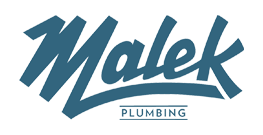Plumbing - FAQs
-
What do I do if a pipe bursts?
First, make sure your family, loved ones, and pets are safe and out of harm’s way. Next, turn off water at the main valve to avoid any further damage. You may also need to turn off the electricity to your home depending on the size and location of the burst pipe. This will be important to continue keeping you and those in your home safe. You can assess the damage and potential areas for clean up from there, make sure to see where areas may weep moisture even after clean up. Take pictures and video for your insurance company to see before you begin any major clean up of the area. This will be important for the claims process. You can begin calling your insurance provider and your Malek Plumber to help once you have taken care of these steps.
-
What are some repairs I can do myself?
Honestly? We recommend calling in one of our expert technicians for many smaller jobs that some may consider tackling on their own and all the big jobs like replacing a hot water tank or clearing a clogged pipe. While you can certainly use a plunger on your toilet or change out a few simple fixtures, anything more than this will require extra work that you want to make sure is done right. A small leak can cause a lot of damage over time and it’s best to let us do the work.
-
When should I replace my hot water heater?
These powerful machines aren’t designed to work forever and need regular maintenance to stay in tip top shape and need to be replaced every 8-10 years. As they wear out, they become less efficient and use more energy to store the hot water your family needs for bathing and cleaning. Some families find they need a larger hot water heater as their family’s needs grow and change. By working with our Malek Plumbing team, we can help you make the best choice for your home or business.
-
What are signs I can look for to detect pipe damage or a leak?
Wet floors or ceilings are pretty obvious signs, but regularly checking under cabinets, especially in less used areas can be helpful. Sometimes a slow leak will soak into the wood of cabinetry, making it harder to detect. Looking for bowing, buckling, or bubbling in the wall or ceiling is a sign a leak may be occurring somewhere in your home or business.
